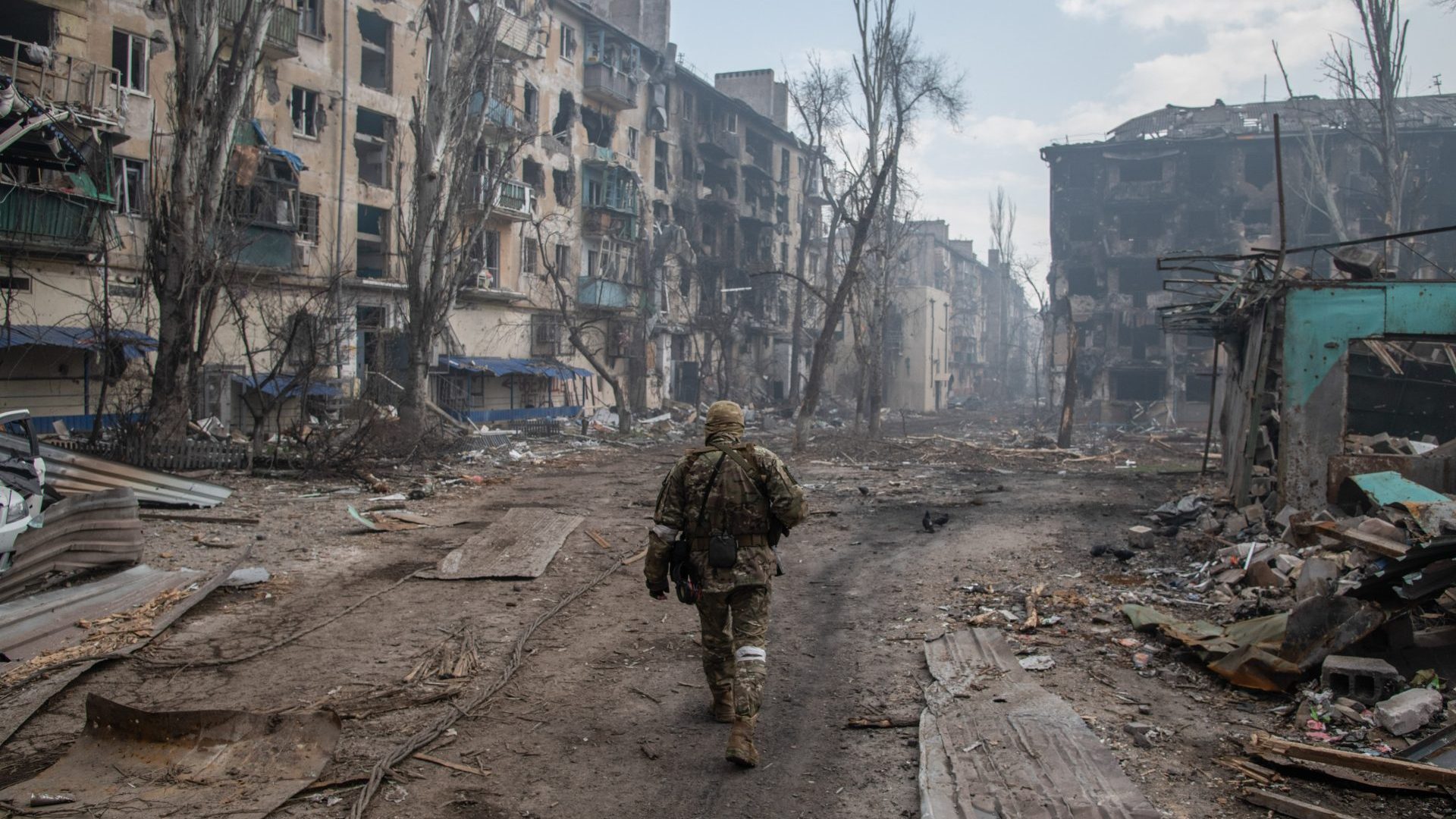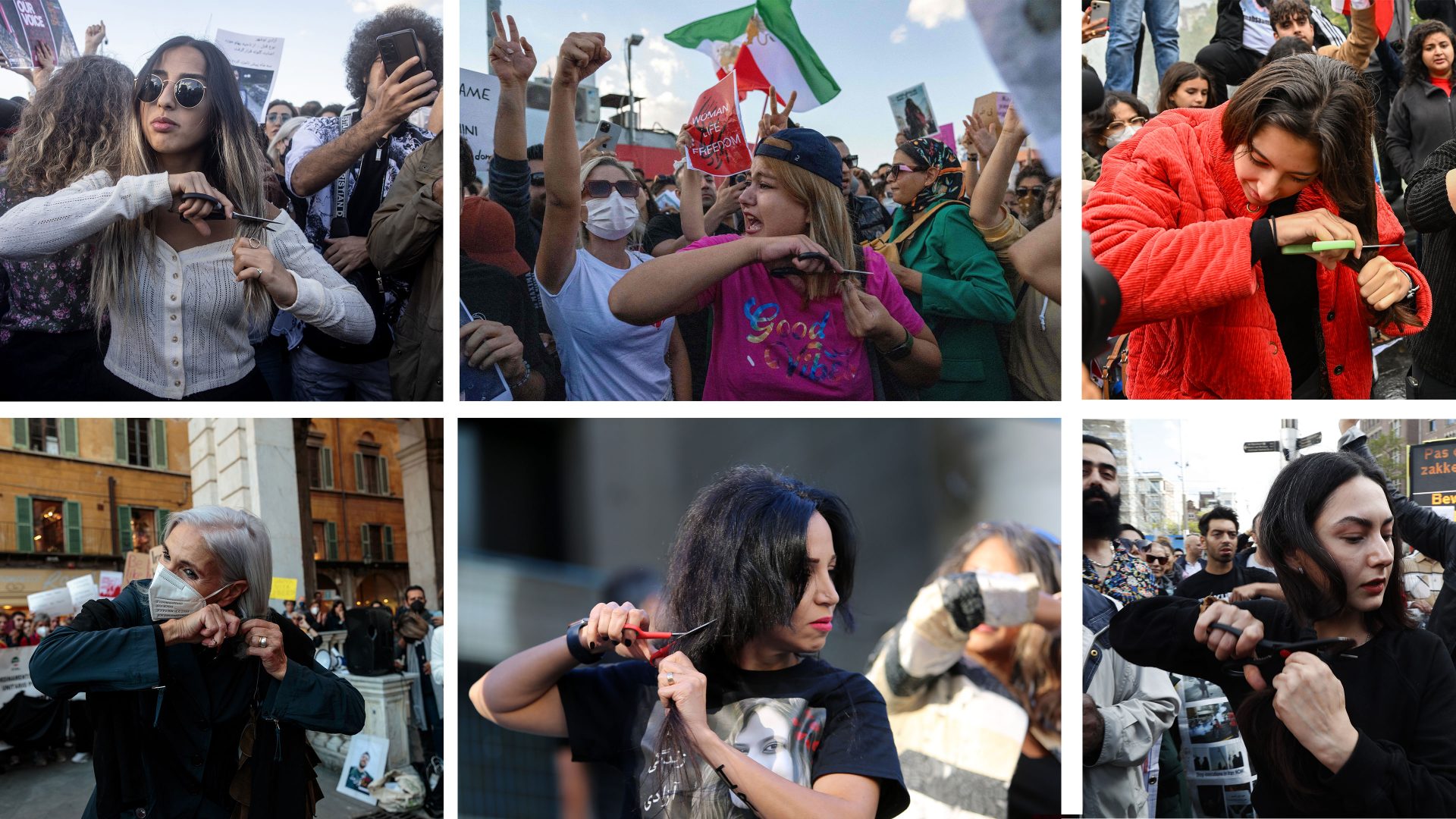General Mark Milley, the barrel-chested chairman of the US Joint Chiefs of Staff, often shoots from the lip. Last week he uttered the words that some think but dare not speak: is this the moment to open peace talks in the Ukraine war?
General Milley’s remarks look astonishingly ill-timed. Russian forces have just retreated from Kherson, a strategic port on the Black Sea and Dnipro river. This follows a Ukrainian counter-offensive which reclaimed 2,000 square miles of territory around Kharkiv, Ukraine’s second largest city. In military parlance, Russian forces are in danger of “breaking”.
For Vladimir Putin, defeat in Ukraine would rank alongside the naval disaster in the Tsushima straits in the 1905 Russo-Japanese war. That is why he responded to the reversal in Kherson with a barrage of missile strikes against Ukrainian infrastructure. One missile even struck Poland, a Nato country – it is not yet clear who fired it. But it is clear that defeat would be terminal for Putin’s authority. And that is precisely the conundrum for the west: however brutal, cynical and murderous Putin is, his successor may well be no better or even worse.
“Keep your eyes on Ramzan Kadryov (the Chechen warlord) or Grigory Prigozhin (head of the mercenary Wagner Group),” says one US defence strategist. “How would we feel about one of those two being in control of Russia’s nuclear arsenal?”
Early on in the war, president Biden hinted that he was ready to contemplate regime change in Moscow. “For God’s sake, this man cannot remain in power,” he said of Putin. But this was an emotional response to atrocities committed by Russian forces on Ukraine soil. In practice, US strategy from day one has been to “bleed” Russia.
The steady supply of high-precision US weaponry, notably the HIMARs missile systems, have tilted the battlefield in Ukraine’s favour. Today, the number of Russian soldiers killed or missing in action stands around 107,000. Throw in mercenaries and deserters and the toll is far higher.
Here is the irony. The CIA predicted Putin’s invasion of Ukraine with pinpoint accuracy but the finest analytical minds failed to anticipate the incompetence of Russia’s armed forces.
The consensus was that Kyiv would fall in days and the war would be over in a fortnight. It is now apparent that corruption and waste in Russia’s armed forces is as ingrained as it was in Soviet times.
Russia’s commanders have proved incapable of combining air, naval and land forces. Their tactics have been no more sophisticated than in the Chechen war more than 20 years ago: terrorizing the civilian population and reducing towns and cities to rubble.
Full credit to the Ukrainian forces who have proved nimble and resourceful in defending their homeland, thanks in part to professional training by British and US units stationed in Ukraine after Putin’s land-grab of Crimea in 2014.
But the Ukrainians have suffered terrible losses too: 7 million have fled overseas and a further 7 million are displaced in their own country. In 2022 the Ukraine economy is expected to shrink by one third, a fall as severe as anything endured during the Great Depression.
This is the context for General Milley’s intervention at the Economic Club in New York. The commander of US forces drew an analogy with the first world war, specifically 1915, when casualties on both sides had grown to more than 1m. By the end of the war in 1918, almost 10m soldiers had died, he pointed out.
Russia had made “a tremendous strategic mistake” in ordering the invasion, General Milley said. But outright military victory was not possible for either side. Now with winter setting in and the fronts stabilising, there was an opening. “When there’s an opportunity to negotiate, when peace can be achieved, seize it,” he said. “Seize the moment.”
Sources tell me that General Milley delivered the same message in private to Biden’s closest advisers, including Jake Sullivan, national security advisor, and William Burns, CIA director. This was a “Kissinger moment”, he declared, an opportunity for a grand strategist to forge a peace satisfying Ukrainian ambitions to be an independent nation anchored in the west while preventing utter humiliation for Putin.
This past week, the Biden administration has been in full damage control. Kyiv is furious that its victory in Kherson, celebrated in person by president Zelensky, has been soured. Hardliners in Washington argue this is the moment to turn up pressure on Putin rather than easing off. Europeans, ever wobbly over the energy crisis, remain tempted by the prospect of peace talks further dampening oil and gas prices.
In the middle of this confusing diplomatic traffic, CIA director Burns chose to travel to Istanbul to meet his Russian counterpart Sergey Naryshkin. Officials insist that the two spy chiefs did not discuss any negotiations over the war in Ukraine but talked about Putin’s nuclear poker (as well as the cases of two detained US citizens, including the female basketball star Brittney Grinerer, who was sentenced to nine years in a penal colony for smuggling less than a gram of hashish oil into the country).
Washington remains concerned that a cornered Putin might resort to a nuclear weapon. The working assumption is that there is still less than one in three odds that Putin would take the ultimate step; if he did, it would be a hard-to-detect tactical nuclear weapon or an improvised “dirty bomb” device, which could later be blamed on the Ukrainians.
Burns will have delivered an unambiguous message to Naryshkin that any use of nuclear weapons would meet with an overwhelming conventional response, destroying Russian troops and equipment in Ukraine as well as sinking its Black Sea Fleet. The same message was aired six weeks ago in a television interview by General David Petraeus, the retired four star general and former CIA director.
As the most experienced diplomat in the Biden administration who has spent hours with Putin over many years, Burns is a pivotal figure in the Ukraine debate. His views are kept close, but he will have one eye on a future negotiation as long as and until Ukraine demonstrates beyond doubt that it can recapture and hold territory.
The Istanbul meeting will have served a purpose, if the message penetrates Putin’s inner circle that the Ukraine war is not only unwinnable, it is a mistake of historic proportions.
Russia has become a pariah nation, highlighted by Putin’s absence from the G20 summit in Bali. The “friendship without limits” between China and Russia has turned into a master-servant” relationship. In economic terms, Russia’s economy is being throttled by western sanctions, with a shortage of key components and lasting harm to the defence industrial base. Putin’s energy blackmail has failed, with gas prices falling after the initial spike and European countries diversifying their sources of supply to Africa and Asia. These markets will not come back anytime soon.
Then there is the cost in human capital. Thousands of skilled young Russians have fled the country, an exodus accelerated by Putin’s botched mobilisation. Many more will follow, either via underground labour channels to the west or bolt holes in Central Asia such as Kazakhstan and Uzbekistan. Add to this the disastrous performance of Russia’s army, and it is possible to understand why Putin might be open to a ceasefire.
The problem is that a truce would freeze the battlefield, leaving open the threat of a reconstituted Russian force attempting once again to incorporate Ukraine into a Greater Russia. In moral, psychological and political terms, a ceasefire at this point would also be unacceptable to president Zelensky and his long-suffering population.
Yet General Milley is not entirely wrong. There will at some point be room to discuss, Kissinger-style, some form of disengagement leading to a broader discussion about the status of post-war Ukraine. This would include prospective EU membership, but also either a path to Nato membership or Nato security guarantees which would be membership by any other name.
Other issues such as reparations, accountability for war crimes and international sanctions will also feature, because they offer the best hope of leverage over Moscow in a future negotiation. They also offer Zelensky cover for possible territorial concessions, notably Crimea. (The Ukraine president is said to have been willing to cede Crimea pre-invasion, along with special provisions for the breakaway republics of Donetsk and Luhansk).
Robert Zoellick, former deputy US Secretary of State and president of the World Bank, says the U.S. should begin the process under international law of transferring more than $300 billion in frozen Russian reserves to Ukraine and other afflicted countries as compensation for Putin’s aggression.
In doing so, the U.S. and allied countries would not be taking Russian reserves for themselves; they would transfer them to an international fund for compensation. They could also use the funds to compensate low-income countries affected by the interruption of food supplies from Ukraine.
Zoellick says it is unreasonable to expect the US congress to vote for the hundreds of millions of dollars in reconstruction funds for Ukraine when there is Russian money for the taking. Europeans will also have to open their wallets, having allowed the Americans to dispatch the lion’s share of military assistance.
To date, the west has been playing on the same chessboard as Putin. The strategy has been essentially reactive. Plans to send 2,000 US marines to Ukraine last January as a deterrent force were rejected as too provocative. The same objection applied to Poland dispatching Soviet era MiG fighter jets to Ukraine.
Today, such actions look relatively tame compared to striking Russian missile sites inside Russia as a means of stopping attacks on civilian targets. The problem is that this could invite a nuclear response. Yet absent a willingness to escalate or a Russian collapse, the most likely outcome is a bloody stalemate.
Right now, senior US officials are running a mile from General Milley. European governments are wondering what on earth is going on. At this point, perhaps, it is worth remembering an old Washington adage: “Scratch every hawk and you will find a dove underneath.”
Lionel Barber in Washington




